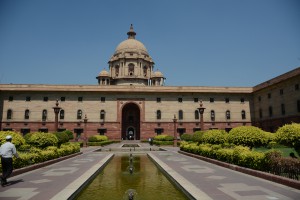The Ministry of Corporate Affairs (MCA) vide a notification dated 1 June 2016 has constituted the National Company Law Tribunal (NCLT) and its appellate authority, the National Company Law Appellate Tribunal (NCLAT) with effect from such date.
The principal bench of the NCLT is to be located at New Delhi, with ten other benches at New Delhi, Mumbai, Kolkata, Chennai, Bengaluru, Chandigarh, Allahabad, Ahmedabad, Hyderabad and Guwahati. Justice S.J. Mukhopadhyay, a retired judge of the Supreme Court of India has been appointed as Chairperson of the NCLAT and Justice M.M. Kumar, a retired judge of the Punjab and Haryana High Court has been appointed as President of the NCLT.
Newly notified provisions
Accompanying the constitution of the NCLT and NCLAT, the MCA has notified, inter alia, the following provisions of the Companies Act, 2013 (2013 Act):
| Section | Particulars | Corresponding Provision under the Companies Act, 1956
|
| 241 | Application to NCLT for relief in cases of oppression
|
397, 398 |
| 242 (except sub-section 1(b) and 2(c) & (g))
|
Powers of NCLT in relation to an application under Section 241 | 402 |
| 243 | Consequence of termination or modification of certain agreements in pursuance of an order under Section 242
|
407 |
| 244 | Right to apply under Section 241
|
399 |
| 245 | Class action proceedings
|
N.A. |
| 434(1) (a) & (b) and (2) | Transfer of pending CLB proceedings
|
647A |
Dissolution of the Company Law Board
The constitution of the NCLT/NCLAT has resulted in the dissolution of the Company Law Board (CLB) established under the Companies Act, 1956, with all pending matters before the CLB being transferred to the NCLT. Therefore, all disputes (including those relating to oppression and mismanagement) which were to be adjudicated upon by the CLB, will now be adjudicated by the NCLT. Further, going forward, both pending matters and fresh applications will be dealt with in accordance with the provisions of the 2013 Act.
However, the 2013 Act carries a saving provision for any decision or order of the CLB that has already been rendered. The appeal against such orders shall continue to lie with the relevant High Court (subject to the applicable timelines), and not the NCLAT.
Phased introduction
It may be noted that despite the constitution of the NCLT and NCLAT, the MCA has desisted from notifying the provisions relating to (i) compromises, arrangements and amalgamations; (ii) revival and rehabilitation of sick companies; and (iii) winding up of companies. The objective may be to transfer matters to the NCLT/NCLAT in a gradual manner, so as to give these new adjudicatory bodies adequate leeway to tackle any teething problems.
Further, the impending notification of the Insolvency and Bankruptcy Code, 2016 (IBC) will also have an impact on the legislative framework, with the IBC providing for the repeal of the 2013 Act provisions relating to revival and rehabilitation of sick companies and undertaking substantial amendments to those relating to the winding up of companies.
Comment
Presently, the scope of the NCLT/NCLAT would remain limited to adjudicating disputes that would have otherwise been filed before the CLB, such as those pertaining to, inter alia, oppression and mismanagement matters. The eventual effect of the constitution of the NCLT/NCLAT will be to subsume the company jurisdiction of the High Courts.
Note by Khaitan & Co, Advocates since 1911. For more information contact editors@khaitanco.com

